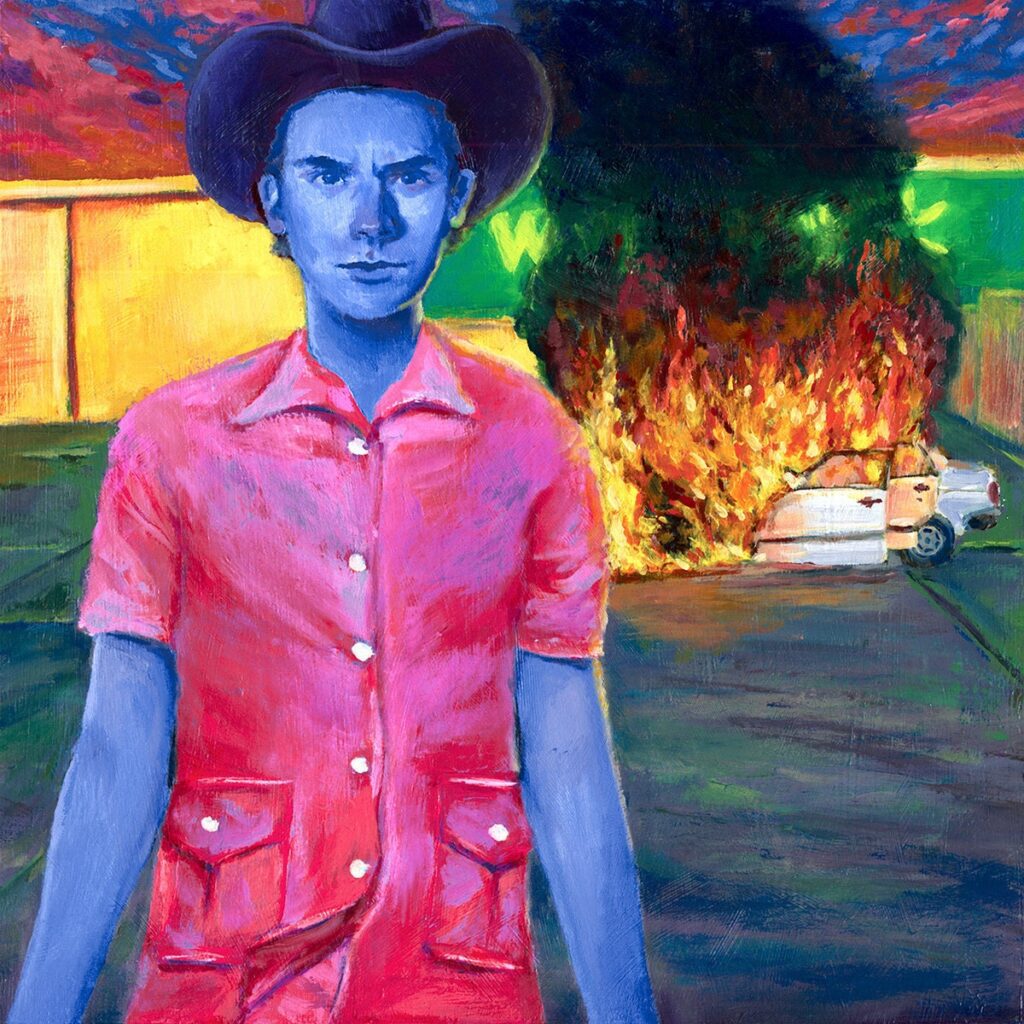John Fahey occupies a paradoxical position in American life. Born and raised in suburban Washington, D.C., his music invokes a kind of a kind of localism by way of the folk, blues, jazz, and country traditions that initially inspired his intricate fingerpicking style. Yet it’s also remarkably placeless, only taking on a specific regional feel by way of its inheritors and the pastoral styles they’ve developed in their own areas. While Fahey’s music itself doesn’t feel of a specific time and place, it’s easy to imagine a map dedicated to all the local sounds it’s informed over the past 50 years, with pins to denote Jim O’Rourke’s Chicago, William Tyler’s Nashville, and Daniel Bachman’s Virginia, where undoubtedly, the city of Amarillo, Texas, would be reserved for Hayden Pedigo.
As a child of Amarillo, the 29-year-old guitarist has found lasting inspiration in his locale, developing a mode of fingerstyle performance that’s specifically indebted to the area. His 2017 album, Greetings From Amarillo, made this connection explicit in both its track titles and on its recordings, which placed his temperate fingerpicking alongside dreamy kosmische soundscapes, and included a vocal interlude from the local visual artist and outlaw country icon Terry Allen (whose music has itself been the subject of recent reissues). Pedigo’s commitment to the region has only seemed to deepen in recent years; in 2019, he starred in a series of surrealist videos announcing his plan to run for Amarillo City Council, which resulted in an outpouring of online support that inspired him to take the election seriously and follow through with an actual campaign, as documented in the 2021 film Kid Candidate. “I definitely mulled it over a lot. It wasn’t a knee-jerk thing,” he told Rolling Stone at the time.
Despite ultimately losing the election to a more monied contender, Pedigo’s campaign introduced the world to his offbeat sense of humor—part John Wilson, part Tim Heidecker—which has since emerged as a central part of his music career. While the recordings themselves have remained just as tranquil and stone-faced as before, they’ve arrived with new photos, videos, and album art that lean into the stir-crazed insanity that seems to accompany the feeling of being an outsider in a small town at every level of success. “Solo guitar music, to be frank, it’s such a stuffy genre,” he said in an interview with Aquarium Drunkard. “People pose for their press photos wearing a tweed jacket with their guitar on their lap. I’ve done that too. But I’m willing to not take myself too seriously.” In 2021, he brought his cowboy charisma to the runway, walking in Gucci’s “Love Parade” show in Hollywood and later sitting for portraits with the celebrated fashion photographer Hedi Slimane. Precisely the kind of surreal career milestones that could easily go to another’s head, these experiences haven’t seemed to phase Pedigo in the slightest, whose music remains as focused and surprising as ever.
The Happiest Times I Ever Ignored arrives a full decade removed from Pedigo’s debut cassette. Gone are the buzzing organs, clumsy multitracking, and unfocused picking that lent Seven Years Late and Greetings From Amarillo an understated charm, replaced by taut phrasing and melodies that push back against the guitarist’s early abstractions. The album adopts the phrase as its basic unit of expression, stitching neighboring tones from open tunings into melodies that fan out across the fretboard. On “Looking at the Fish” and “Elsewhere,” this approach is contained within the bouncing mid-tempo grooves that populate Pedigo’s earlier material, but other songs embrace new temporal possibilities that produce some of the strongest melodies of Pedigo’s career.
Consider “The Happiest Times I Ever Ignored”; in the first few seconds of the track, a distorted electric guitar cuts through the mix at a hurried pace that seems to knock the acoustic melody off-center before stumbling back into alignment with the electric. The short, roughly 15-second phrase is repeated with slight variations throughout the track, embellished with lead melodies that wander ever-slightly before returning back to this central theme. It’s the kind of phrase that could easily grow stale in another guitarist’s hands, but one that his deft touch and deep understanding of tradition lend a feeling of timelessness.
The album is filled with similar moments of splendor that feel like clear triumphs in the context of Pedigo’s catalog. Both “Nearer, Nearer” and “Then It’s Gone” feature equally disarming phrases with the kind of expressive, even-keeled rubato that comes with endless practice. Yet even while releasing songs that feel expertly arranged and rehearsed, Pedigo still retains his sense of humor; alongside the title track, the guitarist released an instructional video for the single that echoes the spirit of his campaign videos. Draped in vintage TV effects and peering out from behind a pair of oversized glasses, Pedigo assumes the role of a cheesy, washed-up guitar instructor, offering real guidance on how to play the piece and warm words of encouragement for students of all ages at home. Loosely framed as comedy, it’s a scene that comes from a sincere place that feels both authentic to Pedigo and genuinely new in the context of his musical career. There’s an honesty and understanding of self here that feels refreshing, especially amid so much fingerstyle traditionalism.
All products featured on Pitchfork are independently selected by our editors. However, when you buy something through our retail links, we may earn an affiliate commission.

